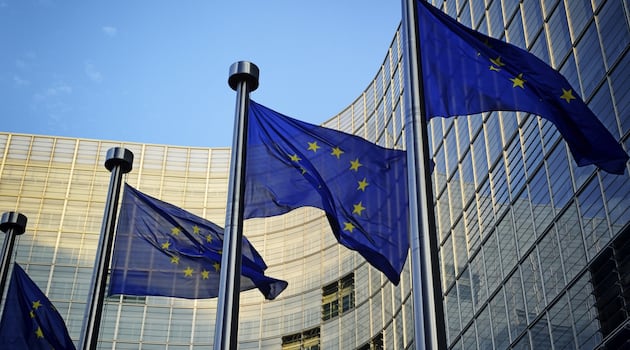
The European Union’s top spending watchdog has raised concerns about the levels of checks and controls on billions of euro given to EU countries to help them bounce back from the Covid-19 pandemic.
Tony Murphy, the Irishman currently heading the European Court of Auditors (ECA), said there was no point in the EU throwing “buckets of money” at member states, if it was not being spent properly.
The rate of EU funding that the Luxembourg-based ECA found had not been spent in line with rules had doubled in the last four years, according to the independent body’s annual report. Auditors found an “error rate” in EU budget spending last year of 5.6 per cent, with most problems identified in cohesion funding given to help poorer regions in the bloc develop.
Mr Murphy also raised significant concerns about the EU’s flagship €750 billion post-Covid-19 recovery scheme, which he said lacked accountability for how well the funds were being spent. Ireland was one of only four countries that had not drawn down any funding from the recovery pot at the end of last year, and only received its first payment this July.
The European Commission had promised money would be more straightforward to claim than established EU funding schemes, but Mr Murphy said many countries had complained it was actually more bureaucratic. Deadlines to apply for the huge grants and loans meant many countries were under pressure to “use it or lose it”, which he said did not necessarily lead to national authorities identifying the best projects to fund.
“There’s no point throwing money at member states if they can’t absorb it appropriately,” Mr Murphy said. The auditors’ report found there was “persistent weakness” in the levels of spending controls on EU funding in some countries.
The EU would come under pressure to make repayments on money it had borrowed to finance the post-pandemic scheme in the coming years, Mr Murphy said. Other priorities the union had might “suffer” as a result, given its budget of about €250 billion was already strained and national capitals did not want to increase their annual contributions, he said.
Ireland remains a net contributor to the EU budget, putting in about €1 billion more than it received in funding last year.
The EU was coming to a “crossroads” where it would need to find more money if it wanted to follow through on big plans in areas such as defence and enlargement, he said. “As things stand, there are more and more areas where the EU wants to intervene and to help and the funding is static,” he said.
[ EU needs to push ahead with capital reforms together – DonohoeOpens in new window ]
Mr Murphy said the high rate of instances where regional development funding for poorer areas in the EU was not spent in line with proper procedures was “worrying”.
However, he added that this test only flagged where the spending of funds had not followed rules or conditions. “Some of these are really formalistic issues where they haven’t complied with certain conditions, but ultimately the project might have delivered and be a positive thing for EU citizens.
“Then we have other cases where everything is in line with the rules and regulations and the project is a white elephant,” he said.
Britain last year paid a further €8.5 billion towards the settlement of the so-called Brexit “divorce bill” of liabilities it owed the EU, the payment of which was a point of tension during negotiations around the UK’s exit from the EU.
“By the end of 2024, it should be down to about €4.6 billion … Despite all the protests at the time, they’re paying the bill,” Mr Murphy said.
- Sign up for the Business Today newsletter and get the latest business news and commentary in your inbox every weekday morning
- Opt in to Business push alerts and have the best news, analysis and comment delivered directly to your phone
- Join The Irish Times on WhatsApp and stay up to date
- Our Inside Business podcast is published weekly – Find the latest episode here











